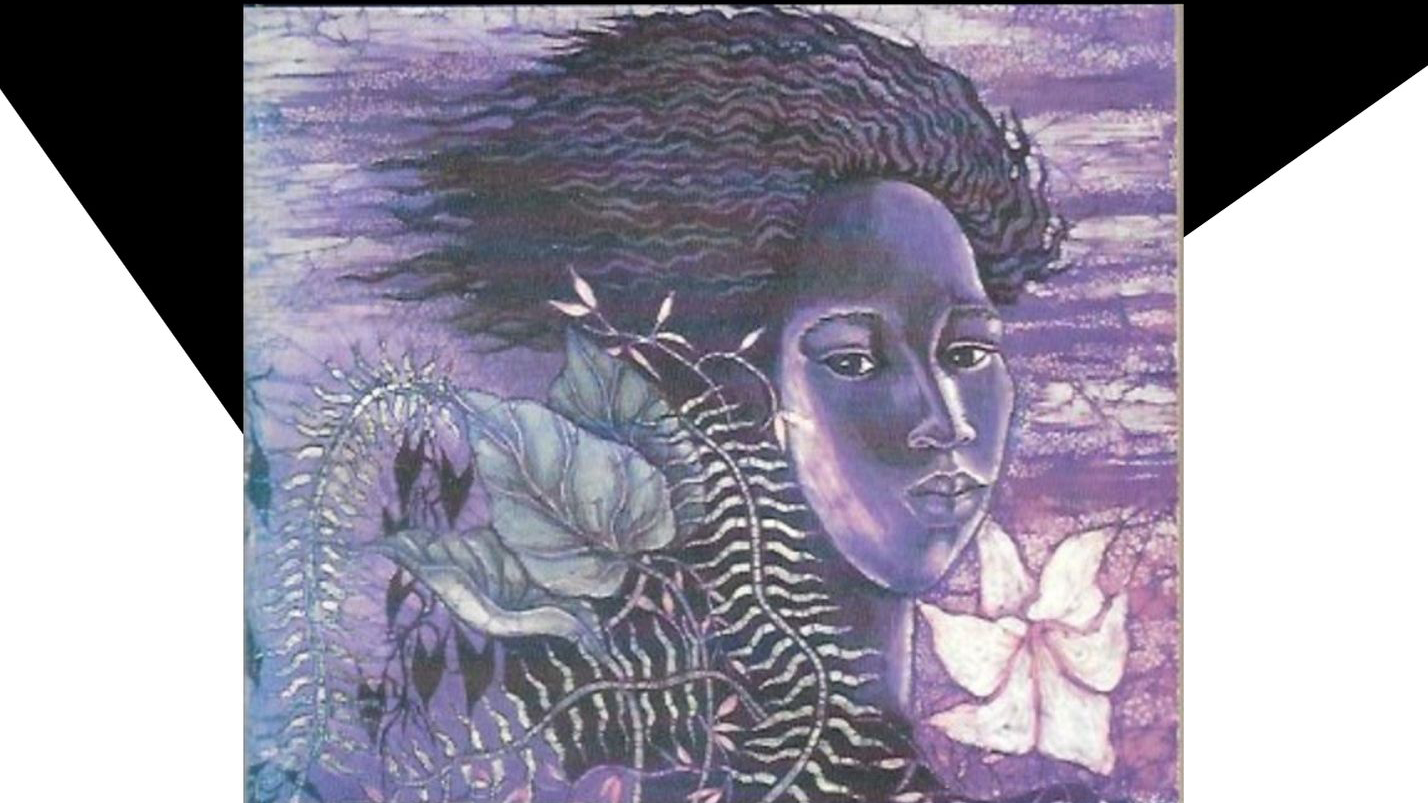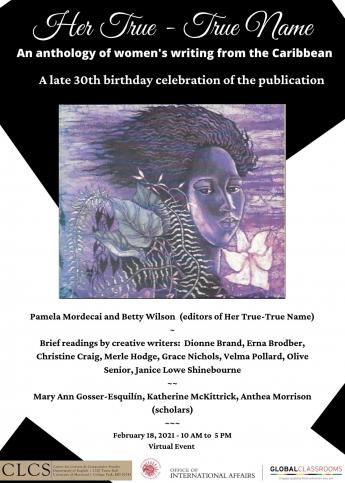Her True-True Name Celebration/Conference

Her True-True Name Celebration/Conference
A conference commemorating the publication of Her True-True Name with women writers from the Anglophone, Hispanophone, and Francophone Caribbean.
Co-sponsored by the Center for Literary and Comparative Studies, the Latin American Studies Center, Global Classrooms, and Office of International Affairs.
For more information contact Merle Collins (collinsm@umd.edu).
As it was then: Revisiting narratives for Her True-True Name, 1989.
In 1989, Heinemann published, in its Caribbean Writers Series, the collection Her True-True Name, edited by Pamela Mordecai and Elizabeth (Betty) Wilson. Vicky Unwin was the Heinemann series editor. Mordecai and Wilson, from the Anglophone Caribbean, had a pan-Caribbean vision for the collection. In the “Acknowledgements,” they credit Carmen C. Estevés, Rosario Ferré, Mark McCaffrey, Lisa Paravisini, and Diana Vélez for permission to use translations of Hispanophone works. They credit their own translators, Fernanda Steele, Claudette Williams, and Karin Wilson, for helping to make it possible to work across language groups. They also credit Annette Insanally, Mervyn Morris, and Joseph Pereira at the University of the West Indies, Mona, and Susan Homar and Emily Krasinski of the University of Puerto Rico for their help identifying and locating Cuban and Puerto Rican excerpts for the collection.
As we think about interrogations of Caribbean identity today, it is instructive to revisit comments made by the editors thirty years ago, when they considered the difficulties of working across language groups, but thought “it was vital” that “our sisters from the non-English-speaking Caribbean should be represented.”
One major aim of the collection was to introduce the voices of women writers to a wider readership. In that 1989 collection, the editors noted, “Despite the fact that it is an important and not insubstantial body of literature, until quite recently Caribbean women’s writing has received little attention from readers, critics and scholars alike.”
The collection, now out of print, includes excerpts from the work of several Caribbean women writers, living at home in the Caribbean and in various parts of the Caribbean diaspora. It helped bring to public and scholarly attention the work of a wide range of writers.
Follow the Conversation @UMDEnglish


